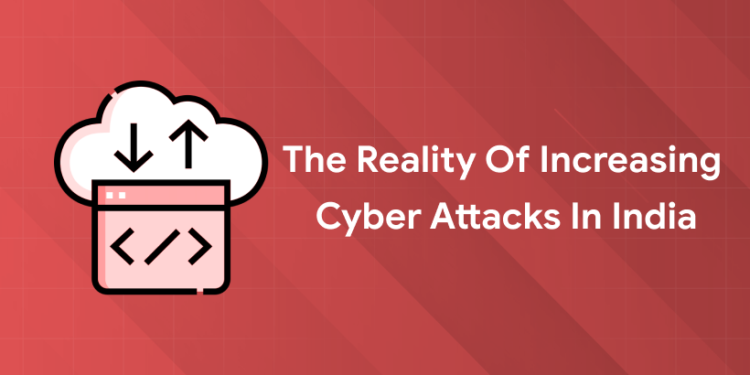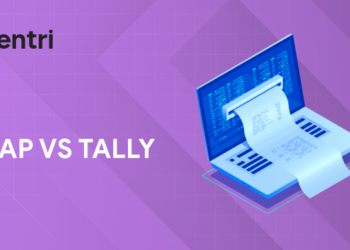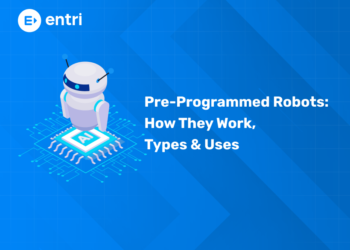Table of Contents
Key Takeaways:
- India’s healthcare, hospitality, and banking sectors are the hottest targets for cybercriminals right now.
- Attacks are rising everywhere, and new tactics (AI scams, cloud breaches, social engineering) mean even small businesses are at risk.
- Weak security for the sake of convenience makes some industries soft targets—look out for simple login experiences without extra verification.
- Cybersecurity skills offer both protection and high-paying jobs across all major sectors in India.
- Staying vigilant, securing your systems, and ongoing learning are the surest path to individual and organizational safety.
Introduction
You’ve probably noticed more and more headlines lately about hospitals hit by ransomware, banks warning customers about phishing scams, or hotel chains caught in a data leak. It feels personal when it’s your medical records, financial details, or even vacation plans at risk—because in today’s world, these attacks aren’t just distant news stories. They’re something any one of us could face, any day.
It’s not just big companies either. From small clinics to local restaurants and neighborhood banks, cybercriminals are finding vulnerabilities everywhere. The digital shift in India has brought immense conveniences, but it also means our data moves faster and is exposed to more risks than ever. Understanding who’s being targeted and how isn’t just for technologists—it’s for anyone who wants to stay secure.
Sectoral Breakdown: Who’s at Risk?
| Sector | % of Cyberattacks | Notable Risks |
|---|---|---|
| Healthcare | 21.82% | Sensitive medical/personal info, urgency |
| Hospitality | 19.57% | Payment records, relaxed security |
| Banking | 17.38% | Financial data, online payment fraud |
Hospitality follows close behind. Think about how much sensitive guest data passes through hotels and travel booking platforms. In their rush to offer seamless services, many hospitality businesses may overlook robust security, making them easy prey for cybercriminals. Third are banks and financial institutions, where attackers chase transaction data, digital payment details, and customer credentials—partly fueled by India’s surge in online banking since the pandemic.[1]
Tip: Spotting a Soft Target
Why Attackers Target These Sectors
Healthcare data is especially lucrative. Not only does it include medical histories, prescription details, and insurance numbers, but health records can reveal behavioral patterns and social connections. Attackers often use ransomware here—locking down systems and demanding urgent payment during critical operations.
Hospitality platforms process heaps of personal and payment information with every booking, payment, and loyalty program sign-up. Since many manage huge databases, cybercriminals use phishing or malware to get credentials or slip into systems through misconfigured cloud storage.
Banks are always in danger because they link directly to money. Attackers use malware, Trojans, and fake web apps to steal funds or identities. Many banks are shifting to digital processes, so APIs and cloud setups can become weak points if not sufficiently protected.
Meaning: Ransomware
Trends in Cyber Attacks (2025-Context)
India now sees more than 8,600 cyber incidents in healthcare every week—quadruple the global average. These numbers keep climbing as more hospital records move online, while telehealth and smart devices add new risks. [2]
Malware (43% of healthcare threats) and ransomware attacks have increased year-on-year. In the hospitality sector, denial-of-service disruptions—where attackers overload company servers—have tripled for small and medium businesses. Financial services face constant phishing and credential-stealing campaigns, with new malware types detected every quarter.
The rise of cloud vulnerabilities is rapid: over 62% of all serious threats now involve cloud services as businesses digitize faster. AI-powered attacks (where criminals use automated techniques to scan for weaknesses or trick staff) are a growing concern too.
Tip: Watch for Phishing

Cybersecurity Best Practices: How to Protect Yourself
- Use strong, unique passwords for every account. If one password gets leaked, you don’t want a domino effect across all your data.
- Enable multi-factor authentication (MFA) wherever possible—this simple step blocks most attacks, even if passwords get stolen.
- Update software and apps regularly to patch weaknesses. Cybercriminals often target outdated systems.
- Train yourself and employees on recognizing phishing emails, suspicious links, and unsafe attachments. Social engineering tricks work best when people are unaware.
- Regularly back up your data and develop an incident response plan so you’re ready if something goes wrong.
Tip: Zero Trust
Salary Opportunities: Cybersecurity Careers in India
| Role | Typical Salary (per annum) | Career Path |
|---|---|---|
| Penetration Tester | ₹5.8–6.4 lakh; up to ₹24.1 lakh | Offensive security, consulting |
| Ethical Hacker | ₹4.2–5.2 lakh; up to ₹22.8 lakh | Security audits, vulnerability assessment |
| SOC Analyst | ₹5–9 lakh | Incident response and detection |
| Cybersecurity Engineer | ₹5.5–10 lakh | Infrastructure defense, network/cloud security |
Cybersecurity is a booming career field—government, healthcare, finance, hospitality, and tech companies all need smart, well-trained professionals to fight off advanced threats. With these salaries, it’s more than just a technical skill; it’s a future-proof path.
Entri’s Cybersecurity Course: Your Gateway to Protection and Career Success
Choosing a cybersecurity course isn’t just about passing exams—it’s about building genuine confidence to face real-world threats. Entri’s course is designed for anyone ready to step up, whether you’re new or looking to specialize.
- AI-Powered Learning: You get hands-on labs with AI-driven simulations, staying updated on attack patterns as they emerge.
- Placement Assistance: Industry mentorship and focused career guidance help you land your first cybersecurity job—especially in Kerala’s fast-growing digital scene.
- 9-Months Study + Paid Internship: Practical experience is at the center of the curriculum, so you’re work-ready from day one.
- Expert Live Sessions & Native-Language Content: No need to struggle with jargon or miss out—mentors and community support get you through every module.
- Globally Recognized Certifications: Earn credentials like NSDC, Illinois Tech, and a comprehensive internship certificate for maximum employability.
- Free Soft Skills Training: Build communication and teamwork skills alongside technical confidence.
- Career Paths Covered: Penetration tester, SOC analyst, ethical hacker, compliance specialist, security engineer, and more. Every lesson ties directly to in-demand job opportunities.
Entri is riding the wave of AI innovation and industry placement—your best bet for landing a secure, high-paying role in 2026 and beyond.
Conclusion
Cyber risks have become part of everyday life in India, touching every business and individual online. But with the right knowledge, vigilance, and technical skill, you can move from being just another potential victim to becoming the one who stops an attack in its tracks.
Why wait? The stakes are only getting higher—enroll in Entri’s Cybersecurity course, grow your expertise, and become the difference-maker in the fight against tomorrow’s digital threats. Join today and help build a safer, smarter India for everyone.
References
- https://www.quickheal.co.in/documents/threat-report/india-cyber-threat-report-2025.pdf
- https://timesofindia.indiatimes.com/india/cyberattacks-to-spike-in-2025-healthcare-and-finance-sectors-at-risk-report/articleshow/116004043.cms
Frequently Asked Questions
Why is healthcare the most targeted sector?
Healthcare stores extremely sensitive personal data, faces constant urgency, and often uses outdated digital systems—making it a prime and vulnerable target for cybercriminals.
What are common cyber threats right now in India?
Trojans, ransomware, phishing scams, and malpractice via fake mobile apps—plus newer dangers like cloud misconfigurations and AI-powered attacks.
Are cyber incidents really increasing this year?
Yes, weekly attack rates in healthcare alone are quadruple global averages, and reported data leaks are rising quarter after quarter.
Can ordinary staff stop a cyberattack?
Absolutely! Employee awareness and basic training in threat detection and response is proven to help reduce successful breaches in SMEs and large enterprises alike.
Is a cybersecurity course worthwhile and how quickly can I begin?
A solid course (like Entri’s, mentioned below) offers everything from beginner basics to advanced labs and quick certifications—ideal for people looking to transition quickly into this essential field.














